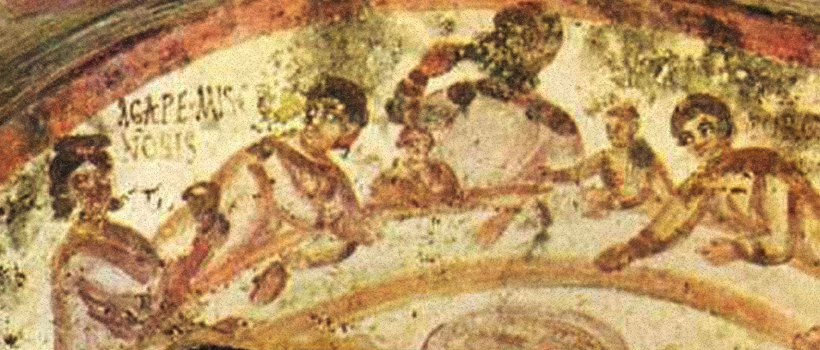What makes a person a 'sinner'? Can a person be a 'sinner' simply by virtue of their ethnic identity? Today, that idea offends our sensibilities. Of course a person's ethnic identity has nothing to do with whether or not they are a 'sinner', we'd insist. Instead, we'd say that "breaking God's law" is what makes a person a 'sinner'. And this seems self-evident to modern Westerners. To sin, we'd tend to believe, is merely to break God's law. Therefore, the law-breaker is a 'sinner'. Case closed!
However, neither the "Old Testament" nor the "New Testament" were written by modern Westerners. It was written by ancient Near Easterners. If you were Judean [1] in the first century CE, this wouldn't be so self-evident. Instead, you would believe that God had especially chosen the nation of Israel to be a kingdom of priests, to receive God's law (Torah), and to model before all the other nations (ethnic groups) what true holiness before God looks like. To the first-century Judean, non-Judeans (i.e. "Gentiles") were 'sinners' by virtue of the fact that they are not included in the nation of Israel. Their ethnic identity excluded them from being God's holy people, which meant they were—you guessed it—unholy, or 'unclean.'
Judeans in the first century kept far away from Gentile 'sinners' so they would not be rendered 'unclean' along with them. Having table fellowship with a Gentile 'sinner' was off the table (pun intended). It would mean accepting them, and they were not acceptable.
Part 1: Preaching the Gospel
This is why Simon, called Peter, wrestles with God in Acts chapter 10. Because of Jesus's Scripture-fulfilling incarnation, life, ministry, teaching, death, resurrection, ascension, and Spirit-outpouring, God's redemptive plan now includes peoples from every nation (ethnic group) in the world. And God is sending Peter to announce that Good News ("the Gospel")! But Peter has been indoctrinated to believe that faithfulness to God necessarily entails shunning Gentile 'sinners'. They're as unclean as pigs! God tries to convince Peter otherwise.…while a meal was being prepared, he fell into a trance. He saw the sky open, and something like a large sheet was let down by its four corners. In the sheet were all sorts of animals, reptiles, and birds. Then a voice said to him, “Get up, Peter; kill and eat them.” “No, Lord,” Peter declared. “I have never eaten anything that our Jewish laws have declared impure and unclean.” But the voice spoke again: “Do not call something unclean if God has made it clean.” The same vision was repeated three times. Then the sheet was suddenly pulled up to heaven. Peter was very perplexed. What could the vision mean? Just then the men sent by Cornelius found Simon’s house. Standing outside the gate, they asked if a man named Simon Peter was staying there. Meanwhile, as Peter was puzzling over the vision, the Holy Spirit said to him, “Three men have come looking for you. Get up, go downstairs, and go with them without hesitation. Don’t worry, for I have sent them.” - Acts 10.10-20 NLTGentiles were as unclean to Peter as reptiles and birds. They were out of bounds. Peter experiences cognitive dissonance when God commands him to 'kill and eat' the unclean animals. This is against the commands of God! Why would God command Peter to disobey one of God's own commands? God explains: "Do not call something unclean if God has made it clean." God has made all things clean for those who share in the faith of Messiah Jesus. God is creating a new community of Judeans and non-Judeans who both share in this faith equally. No longer are Gentiles to be considered "unclean." We must be careful in our judgment of Peter. While we might think we would not have needed the vision repeated three times, and still be confused (v.16), we too can be hard-headed and slow to accept God's challenging word to us. But God confirms the vision by sending men from a righteous Gentile named Cornelius. Peter obediently goes with the men to Cornelius's house, but makes sure that he knows this is very unorthodox: "You know it is against our laws for a Jewish man to enter a Gentile home like this or to associate with you." (v.28a) But, finally, Peter puts all the pieces of the puzzle together and realizes what it is God is teaching him: "But God has shown me that I should no longer think of anyone as impure or unclean." (v.28b) While Peter is getting his lesson from the Lord, Cornelius is also being taught by the same Lord. Cornelius tells him his story of being visited by a messenger from God who instructed him to send for Simon (aka Peter). Peter is so impressed, he exclaims:
"I see very clearly that God shows no favoritism. In every nation he accepts those who fear him and do what is right." (v.34-35)(Does the Church in the U.S. believe this?) After Peter shares the Good News with Cornelius (i.e. God's story of redemption in and through Jesus, in fulfillment of the Scriptures), he sees that God has accepted this Gentiles' entire household, for they are given the gift of the Holy Sprit (vv.44-46). His instinct is to baptism them into the new Jesus-community God is forming.
"Can anyone object to their being baptized, now that they have received the Holy Spirit just as we did?" (v.47)Peter finally gets it! …or, at least, he had it for a while!


